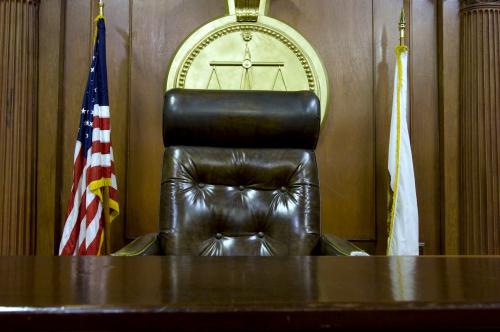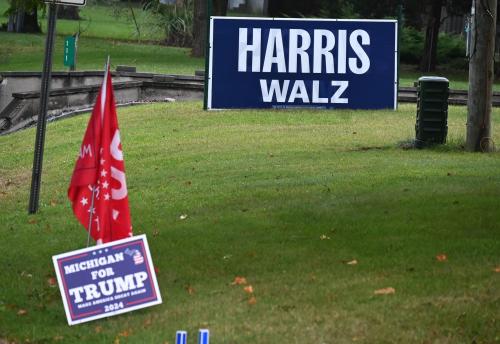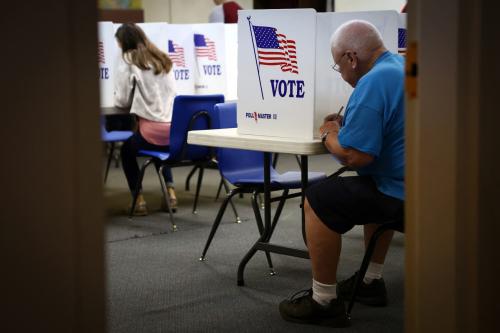Hurricanes Helene and Milton have devastated communities across the South. Helene went up the East Coast and drenched people in Florida, Georgia, South Carolina, and North Carolina, before unleashing traumatic floods in the western part of North Carolina. In some cases, residents in places distant from the coast had mere minutes to evacuate before rising water and mudslides destroyed roads and evacuation routes. At the latest count, around 230 people have lost their lives, many individuals saw their homes ruined, and businesses were forced to close with little hope of reopening.
Milton, meanwhile, slammed into Florida with high winds and strong storm surges. With water rises running over a dozen feet, it forced evacuations of large numbers of people and created destruction around the Sunshine State. With storms getting bigger and dropping more rain, the property damage goes up, lives are lost, and people have difficulty finding insurers for their homes.
These super-storms are merely the latest in a long line of hurricanes, tornadoes, floods, and drought that have afflicted the United States. As the planet has warmed up, storms are getting worse as the warmer waters and more humid air intensify hurricanes and unleash tremendous damage on affected communities. Climate change clearly contributes to the extreme storms and poses tremendous risks going forward.
But aside from the devastations resulting from these natural disasters, in many places there has been a flood of misinformation that has spread false rumors, undermined government officials and disaster relief agencies, and alleged undocumented immigrants are getting more help than flood-plagued Americans. False claims have been viewed more than 160 million times in the days following the recent hurricanes.
There have been widely shared posts on Twitter/X that “the Federal Emergency Management Agency ‘actively blocked’ donations to victims of Helene and is ‘seizing goods…and locking them away.’” X owner Elon Musk has added his own false twists to the situation by claiming that “FEMA used up its budget ferrying illegals into the country instead of saving American lives.” Republican presidential nominee Donald Trump falsely claimed administration officials have not reached out to governors in affected states and offered federal assistance. Georgia Governor Brian Kemp quickly shot down that allegation by saying President Joe Biden had called him and provided helpful federal assistance.
The traditional wisdom on false narratives and conspiracy theories used to be to ignore crazy rumors and fail to respond in order not to amplify fake stories. The idea was that not responding was safer than confronting and challenging false stories and seeking to correct the official record.
Yet in an effort to fight false narratives, government authorities and civil society organizations now are pushing back hard on disaster-related misinformation. In the case of Helene, for example, FEMA Administrator Deanne Criswell complained that “It’s just really unfortunate that [people] continue to try to create this level of fear in these communities that is impeding our ability to do our job at the level that we need to do it, but we’re not going to let it deter us.” Continuing, she noted, “We are going to continue to be in these communities and support them for whatever they need.”
Governors are aggressively fighting disinformation. They point to the millions of federal assistance that already has poured into affected states and provided help for the displaced. They argue FEMA has done a productive job under very challenging circumstances and continues to be a constructive force in disaster relief.
Republican members of Congress from western North Carolina joined the debunking. For example, Representative Chuck Edwards (R-N.C.) did a CNN interview where he challenged disaster-related misinformation. He noted that Hurricane Helene was not geo-engineered by the government, FEMA delivery trucks were not being stopped at the state border, and disaster relief money was not being confiscated or diverted to immigrants or foreign aid.
In altering the conventional communications response, authorities are focusing on several principles. First, it is important to confront blatant lies. FEMA has a rumor control page to deal with disaster-related misinformation that notes false rumors and explains what actually is happening. It, along with other organizations, is fact-checking questionable allegations and putting out factual information for reporters and the general public.
Second, people need to rely on trusted communicators in the aftermath of natural disasters. Churches, synagogues, nonprofit organizations, and civic groups can play a constructive role in offering help, clarifying rumors, and shooting down blatant lies. They can confront deceit and push out fact-based information. They can reassure the afflicted, provide needed assistance, and work with government authorities so that disaster relief help gets to those who need it.
Third, people should monitor social media sites so they know what problematic rumors are circulating and how people are reacting to those lies. Rumors can go viral in a matter of minutes and reach millions of Americans. Through AI and automated bots, lies can quickly overwhelm the truth, scare people, and interfere with disaster relief operations, and there has to be pushback against these falsehoods.
Speaking more broadly, we need to understand that blatant lies can cost lives, harm businesses, and damage trust in American institutions. As Elaine Kamarck and I argue in our Brookings Press book “Lies That Kill: A Citizen’s Guide to Disinformation,” there are falsehoods that plague many areas from election integrity and public health to climate change and race relations. It is vital to take aggressive action to protect civic discourse. Democracies require facts and reasonable discourse in order to solve problems and address natural disasters. Information that falsely undermines public trust is dangerous and corrodes our national conversations and ability to address pressing problems.







Commentary
Fighting hurricane misinformation requires aggressive pushback
October 9, 2024